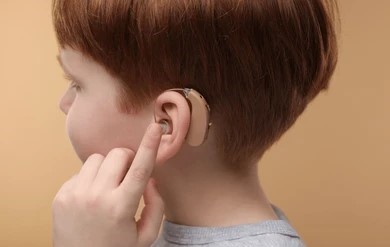Symptoms
As babies grow into toddlers, signs of hearing loss may become more noticeable. Some common symptoms include:
- Delayed or absent speech development.
- Frequent inattention or lack of response.
- Difficulty learning or limited language skills.
- Increasing the volume of the TV or devices beyond normal levels.
- Failure to respond to conversations or giving inappropriate answers.
- Not reacting to their name or becoming agitated by background noise.

